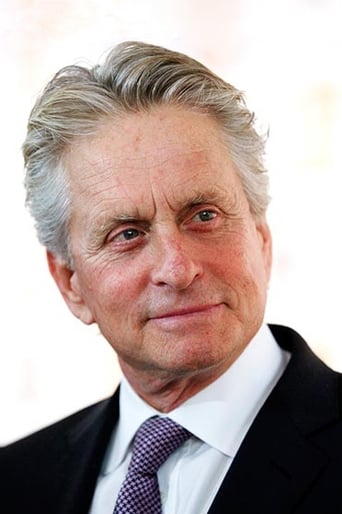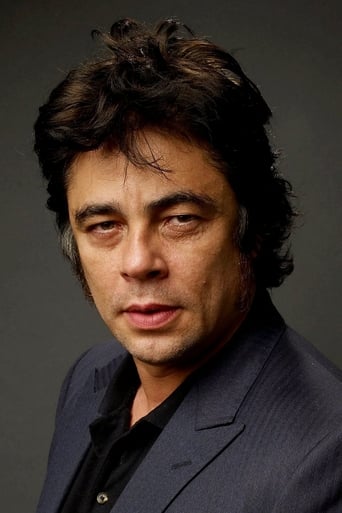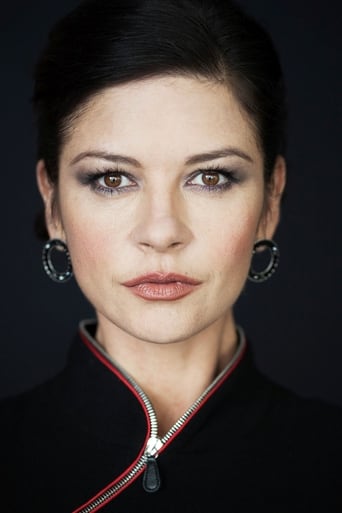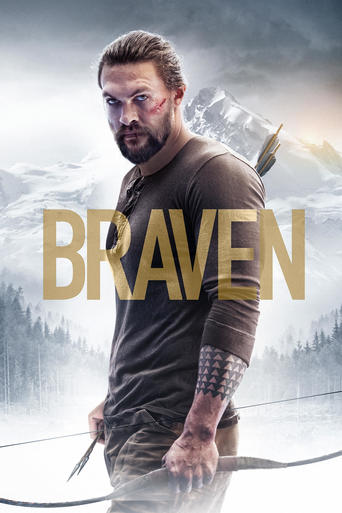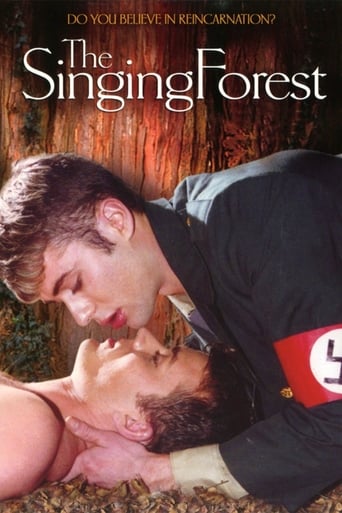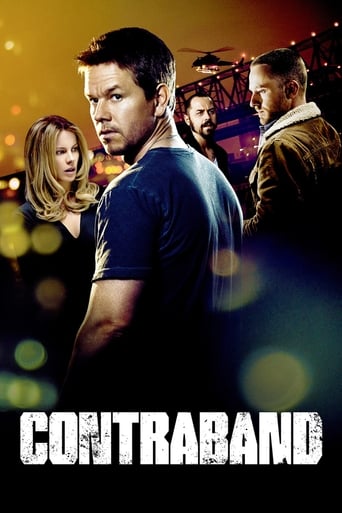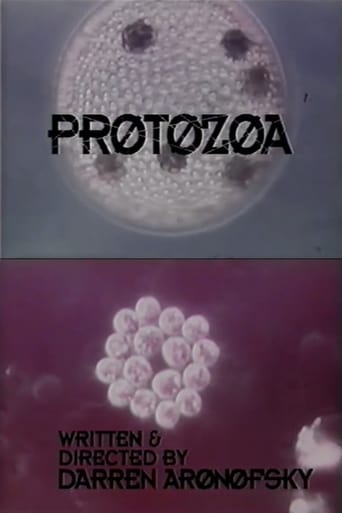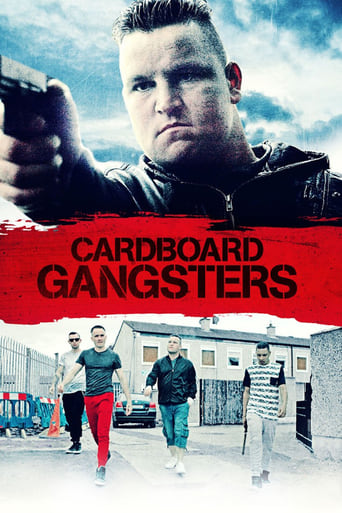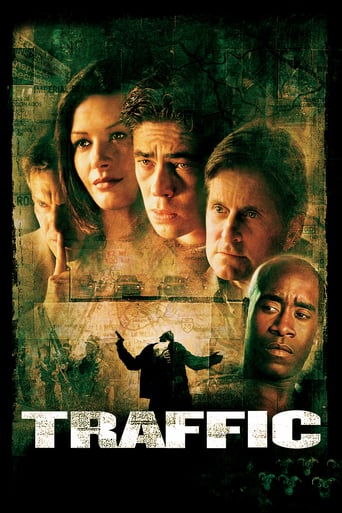
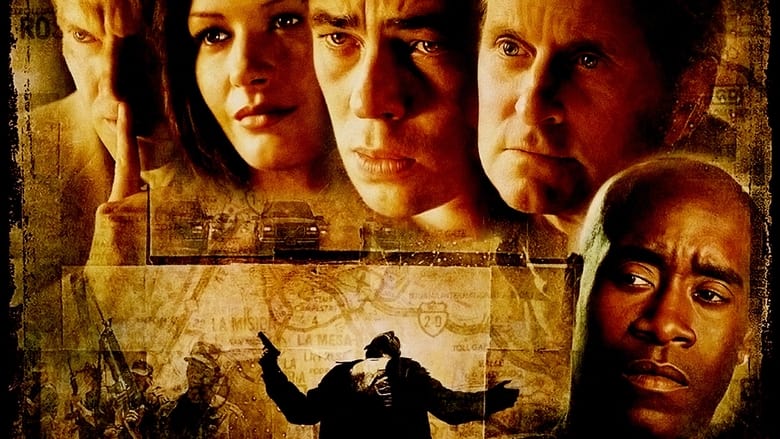
 Watch Now
Watch Now




Traffic (2000)
 Watch Now
Watch Now




An exploration of the United States of America's war on drugs from multiple perspectives. For the new head of the Office of National Drug Control Policy, the war becomes personal when he discovers his well-educated daughter is abusing cocaine within their comfortable suburban home. In Mexico, a flawed, but noble policeman agrees to testify against a powerful general in league with a cartel, and in San Diego, a drug kingpin's sheltered trophy wife must learn her husband's ruthless business after he is arrested, endangering her luxurious lifestyle.
Watch Trailer
Cast


Similar titles
Reviews
It's the kind of movie you'll want to see a second time with someone who hasn't seen it yet, to remember what it was like to watch it for the first time.
what a terribly boring film. I'm sorry but this is absolutely not deserving of best picture and will be forgotten quickly. Entertaining and engaging cinema? No. Nothing performances with flat faces and mistaking silence for subtlety.
Excellent and certainly provocative... If nothing else, the film is a real conversation starter.
All of these films share one commonality, that being a kind of emotional center that humanizes a cast of monsters.
The film 'Traffic', directed by Steven Soderbergh, traces three different stories in one movie, with one theme holding them together. The war on drugs. This film is so far one of the most intriguing and creative thriller movie I have seen. With a somewhat common bond holding this movie together, the government's attempts to abolish the drug industry, the film still makes no problems making this subject seem fresh and new with creative filming and editing as well as the different story arcs. This lead to this movie standing as a masterpiece in present time, due to it's wild creativity with editing and complex yet intriguing storylines. This 18 year old film is not only a film that hasn't aged, but something that will never rot. The most beautiful feature of this film are the bittersweet endings for all three stories shown in this movie. Unlike a wild racing ending like many crime action movies, the film decided to capture, bitter endings. In the end of story one, the arc with the two policemen caught in this war, we see Javier (Benicio Del Toro) sitting alone in a neighborhood kids baseball game. There are two things to catch in this final scene of the movie. We see his subtle complex melancholy facial expression, battered up and exhausted with his partners horrific death, excellently presented by Benicio Del Toro. His once sunglass shaded eyes are now visible, showing off a blank, grey pupil. However, it is not only grief we see in his facade. We also see relief, relief from the escape of this corrupt drug war. As a baseball is smashed by a child, we see his hand slowly clap subtly, but eventually forming a prayer. The second thing to notice is the baseball game, well lit with electric light. These new lights are from Javier himself, when he asked his new boss drug lord kingpin for baseball lights so that children don't have to play in the dangerous dark. These two things, Javier's relieved yet melancholy face, and the well lit baseball field, shows us a perfect bittersweet ending. The scene is trying to explain to us, without any words, that even though the war on drugs will never be over, Javier tried to make his own town a little better and safer with his small demand. This heartfelt scene is the final scene of not only Javier's arc, but the whole movie. As the baseball game continues, the credits roll. Even though it was a long movie with a whopping two hours and thirty minutes, this heavily emotional and simply beautiful ending itself will be worth your time. Another bittersweet ending can be noted from an another arc. The second main arc of the film is the drug czar. After watching his daughter prostituting herself, Robert wakefield (Michael Douglas) claims he can't have a war with his own family, and leaves his position as the drug czar. This ending is quite a surprising one, as Robert showed no change of plans to his job before his quitting. However, after long hesitation, he finally speaks his thoughts, and rushes off the podium. This ending shows us that Robert will spend more time with his family after realizing that the war on drugs will never be one. The director purposefully connected the police duo arc and this arc with a smaller theme: a never ending war. Both started eagerly to participate in this forever war on drugs, each taking different sides. However, at the end, they realize what was more important was right in front of them: The daughter and the neighborhood. Arguably, the most beautiful perk of the division of stories were the overlapping themes. These bittersweet endings really contributed to painting this masterpiece. Apart from it's simply amazing storyline and ending, another act we have to praise is the way of filming and editing. This movie was filmed by the director himself, and is purposely meant to look unstable. The camera is never completely still, and resembles a way a documentary or an indie film is filmed. Even though it was a movie that starred several hollywood stars, the filming and editing seemed cheap. Some might disagree, but I believe this was not a blunder by the director. To match the sketchy, unstable tone of the whole film, being a thriller, the way it was caught on camera was perfectly suitable for the tone and mood for this film. In the editing process, the editing team implemented a creative way to differentiate the complex stories and set the mood: colour. The colour plays a gigantic role in this movie. It helps the audience to understand the tone and mood as well as which story arc we are in. The two police arc has a heavy orange and yellow colour, matching the deserts they are usually in. It also matches the heated action and thrill in their scenes, engulfing readers into the movie. The czar arc's colour is the complete opposite. It is a cold, strong blue like the arctic sea. It seems to display the cold, corrupt world of governments and the political side of the war on drugs. The colour freezes the audience on the spot, making the thrill of the movies scenes more powerful. This technique was not only a mere gimmick, but something that bonded the movie together and what truly painted the movie. This movie was truly something magnificent. It sucked the audience in with vibrant colours. It made the audience bite their nails in the tense mood. And at the end, gave a truly satisfying bittersweet ending. This movie, though not the easiest to watch and understand, was a full course meal of fine story, filming, and intensity.
Traffic was an okay film, and that's pretty well my complete opinion on it. I appreciated the message and thought it was interesting, but I had trouble staying completely engaged throughout. This movie isn't too old and although I wasn't too enthralled by it, I do think it aged well. The cinematography may not be the most spectacular but it does has nice aspects that aren't dated yet (the tone, the shots). For me, the different tones from each location were the most interesting part to watch, seeing where they put each colour in and when and also why. I was wondering why they put the blue on only sometimes in Washington; I think I would've figured it out if I had watched closer. I think the colour tones helped move the storyline along really nicely as it created a different mood and feeling each time it switched. Much enjoyed. In the end when Michael Douglas resigned, I think it was because he finally realized he was fighting a losing battle. The drug war was hopeless and he knew it because there are always going to be more people filling in for those who get arrested. Also, he knew he couldn't be fighting his daughter because she would just spiral further; it wouldn't work. A final reason would be that he knew he was doing the right thing by stepping down; he needed to lead the next movement of helping and supporting those who struggle with substance abuse instead of fighting them and pushing them away. All in all, a decent film.
Traffic was an interesting movie, it had very intense scenes but also boring parts. I think it would have been a good movie back in the 2000s, but now it hasn't been aged so well. The different tones in the scenes help you know the difference in places and situations, so in one part it helped in the other part maybe the color they added was maybe too intense. However, the movie was filmed good, all the angles and the characters were also very good.
Drugs are bad, not doubt about it. But the worst and most incomprehensible aspect about drug usage is the complex politics that go behind the dirty business. From the government of the higher hierarchy to the law enforcement roaming around on the streets, the American war on drugs is a complicated business from inside and out. Morals are tested and families are threatened, and the consequences behind the illegal drug business are, more or less, as tragic as what director Steven Soderbergh displays on screen. Capturing its political concept in multiple story lines, Soderbergh straps audiences into a gripping portrayal of a society brought its knees by the illegal drug trade and the violent repercussions of the contraband activity, all while gripping us with an emotional resonance surrounding the gritty nature of a world run amok by moral ambiguity. The film, revolving around the American war on drugs, is told of three intertwining perspectives. The first one follows two Mexican police officers Javier Rodriguez (played by Benicio Del Toro) and Manolo Sanchez (played by Jacob Vargas) who are tasked by their boss Arturo Salazar (played by Tomas Milian) to take down the Juarez drug cartel, on to themselves wrapped up in a double-crossing scheme. A second following one following two DEA agents Montel Gordon (played by Don Cheadle) and Ray Castro (played by Luis Guzman) who capture a local drug dealer who in return, rats out his boss Carlos Ayala (played by Steven Bauer), who is arrested and must face trial under the defense of his attorney (played by Dennis Quaid) while his wife (played by Catherine Zeta-Jones) and child are threatened by his accomplices. Then a third one following a Ohio conservative judge Robert Wakefield (played by Michael Douglas) who learns his teenage daughter has become hooked on heroin.For such a heavy and bold topic such as the illegal drug exchange, it is only expected that Steven Soderbergh captures both the emotional and politically-charged atmosphere of its plot. In the midst of his ambitious approach, his efforts are mostly successful as he brings the script, written by Stephen Gaghan, to gritty effect. Soderbergh doesn't journey through the safe route of going for a straight forward approach to the story, especially for one told through three intertwining story lines, each of which are shot in alternating color shades to allow us to tell each storyline apart (as if the cast of characters for each storyline were not enough to make things clear). There are just a few problematic elements that lie within his daunting approach. For one, it is a little overlong, mostly with how the story meanders during the final half hour as each of the characters come to terms with their tragedies. On the other hand, that does almost nothing to take away from the emotional magnitude that the film pounds us on once the story kicks into gear. In addition, there is plenty to say about the nature of America during the war on drugs, and not in a way that shouts with condemnation against the war nor clear justification for it. That is mostly kept ambiguous. And the same goes for the characters of whom are portrayed with a morally gray persona wrestling in battles between right and wrong, the best of which is demonstrated in the storyline following Javier and Manolo who face the moral corruption of their superior officer who has something fishy going on behind their backs. If there is one thing that is made clear, it is that law enforcement officers are not always the good guys. Some of them may be worse than the drug dealers. With such an enormous ensemble cast sharing the spotlight, it is difficult to single out one above the rest in terms of the most grounded of performances. However, this crown would have to go to Benicio Del Toro as Javier Rodriguez, a man wrestling with his conscious when he along his partner witness the ugly image his boss reveals behind the mask. Although he doesn't fall into the hero category, he is one of the very few individuals we can sympathize with as he is dragged into a dark and complicated underworld of moral ambiguity. Michael Douglas, playing a conservative judge who faces every parent's worst nightmare: her child hooked on drugs, is powerful in his role as well. The same can said for Don Cheadle and Luis Guzman in their roles as DEA agent fighting against the bloody drug trafficking operations. Although both of their character arcs are shallow of depth, these actors show they have the acting chops to take on such daunting roles. Catherine Zeta-Jones is well with her performance. But again, nothing that avoids getting blown out of the water by the performance of Del Toro. After all, he is the shining star among the cast, despite the fact being in a supporting role like everyone else. All in all, it seems like everyone in the cast had their game faces on throughout filming. Traffic is a gripping, if overlong examination on the American drug wars shining the ambitious directorial methodology of Steven Soderbergh. For such a violent and gritty take on its subject matter, it is powerful, it is realistic, and almost never fails to capture the political magnitude of its concept.


